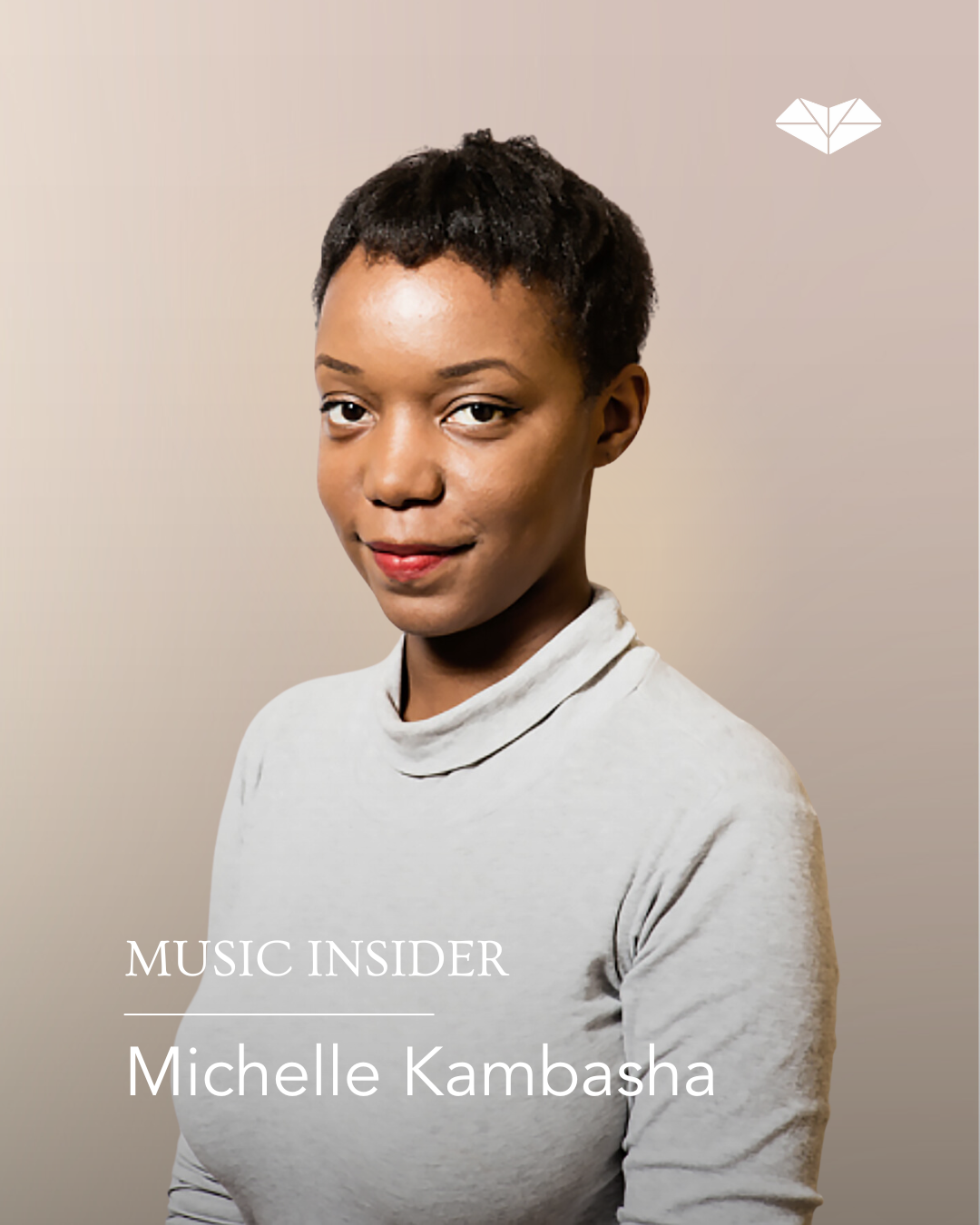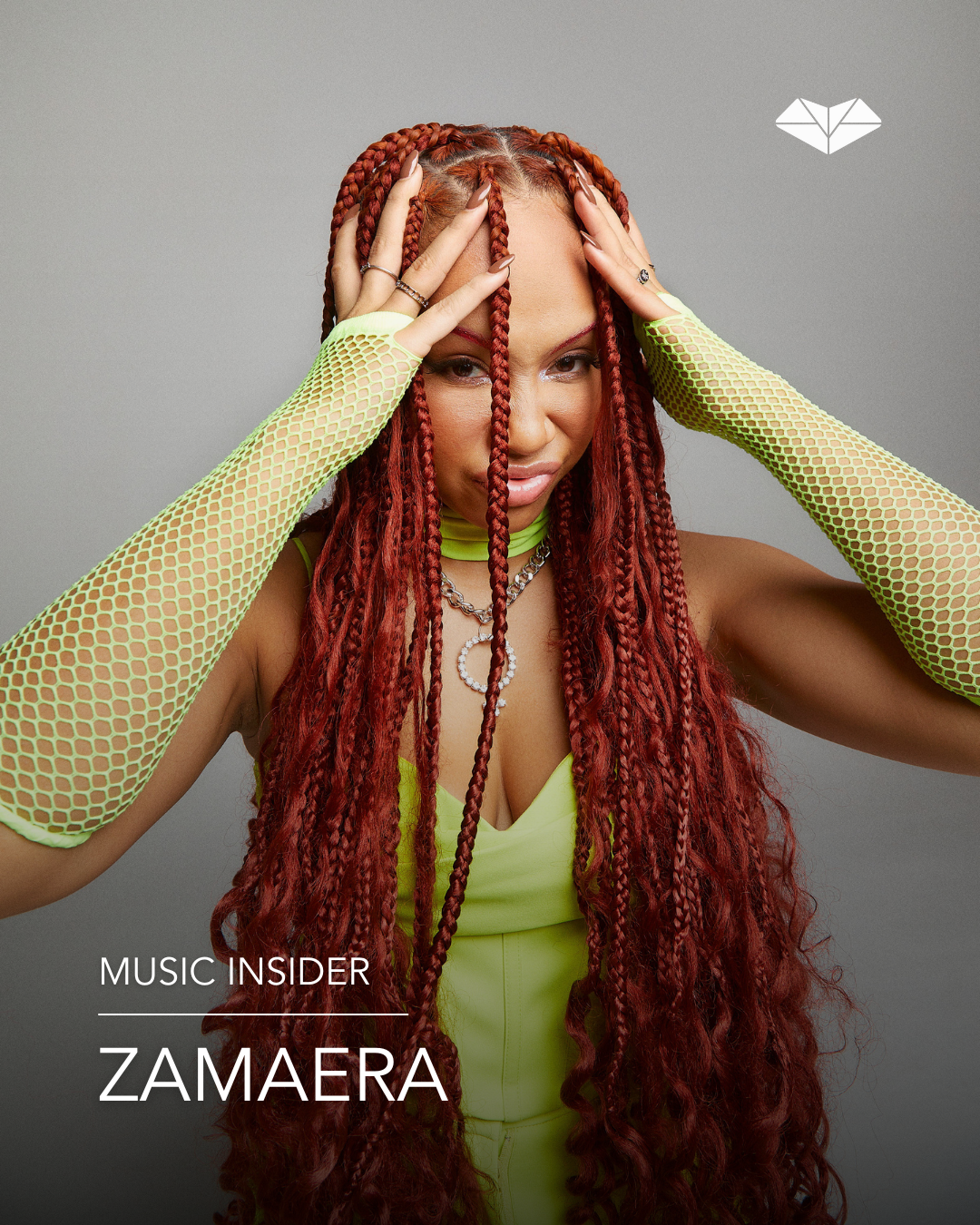Michelle Kambasha is a music publicist, journalist, public speaker and educator. Her work primarily focuses on the intersection of Black representation in alternative music spaces. As a publicist, she worked at Secretly Group and Satellite414 covering acts like Sharon Van Etten, Bon Iver, William Eggleston, Lonnie Holley, Jamila Woods, Moses Sumney, Dave, Amber Mark and more.
She also frequently writes for major publications such as the Guardian, The Telegraph, The Independent and frequently hosts industry focused talks on panels alongside running her PR company, KP Communications (where she works with Kara Jackson, Jamila Woods, Aja Monet, Madison McFerrin) as well as organisations like The Black Curriculum.
Michelle launched “Black Radical” (a new substack newsletter that will exclusively feature black artists that perform in alternative and/or less mainstream music genres e.g. post punk, singer-songwriter, indie, jazz, guitars, rock, experimental etc.) in early July.
"Black Radical" subscribers already include top music journalists, independent and major label figures, booking agents, sync executives, and music fans. Artists of any experience, age, gender, and level are welcome, and coverage isn’t beholden to upcoming release schedules.
How did you start your career in music?
I started my career properly as a junior music publicist at Secretly Group (Dead Oceans, Jagjawar and Secretly Canadian). It was a very exciting time to be working at the company; they had a small team, dedicated to establishing the label in the UK and Europe. The staff was experienced and came from different music backgrounds. Being only 21 at the time, I was really lucky to work with people who were willing to help guide me.
At the time, the label was known for working with artists that were firmly in the US indie-rock tradition, such as the War on Drugs, Bon Iver, Black Mountain, Sharon Van Etten and more. In the years that I worked at the company, the label progressed to being much more diverse - both in its roster and its workforce. It meant that I had the privilege of working with artists of the global majority like Jamila Woods, Moses Sumney, Japanese Breakfast, Lonnie Holley and Durand Jones. It was clear that there were higher-ups in the organisation that were making a concerted effort to stay true to themselves and evolve while doing so. It’s an ethos that I’ve taken with me and embedded more radically to my own working practices.
What inspired you to create the black radical newsletter?
It was a combination of things. Over the last year, I began to renegotiate what I wanted my participation in the music industry to look like. I’d spent many years as a publicist, with a few other things tacked on, but I felt I needed to be re-energised in a different way, that combined my expertise and my values. I did a personal audit and my interests and passions began to reveal themselves. The key question became: how do I create a simple project that combines my work as a publicist/writer with my love of Black alternative and radical traditions within music? Many ideas floated, then suddenly the idea for this newsletter came to me. Over the last five or so years, there’s been a re-emergence of Black alternative musicians in the indie mainstream (we have always been there), which I’ve found encouraging. But I’ve often found it frustrating that some writers struggled to tackle the racial question in a nuanced way or reduced stories to ones merely about race, when it isn’t called for.
Article by Michelle Kambasha at the Guardian | Jun 2022
Oftentimes Black musicians have to offer up their identities on a platter, only for it to be reduced to racialised headlines and questions that had nothing to do with their music. That, or they’ve mishandled the questions that were about race. Beyond articles, I’ve seen this in action as a publicist working for Black alternative artists.
At the same time, I was reading the work of different poets, journalists, artists and theorists who tackled the questions of Black alternative existence: Saidiya Hartman, Kodwo Eshun, Neil Kulkarni, Craig Jenkins, Hanif Abduraqqib, Dele Fadele, Greg Tate, Hilton Als, Amiri Baraka, Toni Morrison, James Baldwin, June Jordan, Christina Sharpe, Julie Dash, folk of the Black Arts Movement, Horace Ove, Stephanie Phillips, John Akomfrah and the Black Audio Film Collective and many many more - this is where the radical element of the newsletter comes into play.
I am also concerned with Black publications that don’t highlight the work of Black alternative musicians. While they may not have the influence of white media, I believe they have a responsibility in showing all of us. This isn’t a new struggle - even when there were more Black titles, there is a long tradition of them not covering key aspects of Black music tradition, be it jazz, blues and electronic music.
Was there a particular event or realisation that made you feel the need to create a dedicated platform for showcasing black artists in alternative music genres?
Along with some of what I’ve mentioned already, I was particularly catalysed by how Black Music Month was covered by major organisations like Apple, NPR, Grammy.com and many more. There was a keen focus on Black music of the R&B and hip-hop tradition, but nothing about our place in genres like rock, punk, alternative and (maybe most shockingly) electronic music and jazz.
Omitting our presence further erodes the public perception that we weren’t/aren’t present in this space, when quote the opposite is true. It felt like a huge oversight and missed opportunity. More generally, It’s the same publications and organisations that commission one-off articles about the reclamation of Black people in these spaces, but elsewhere continue to categorise us as being ‘just one thing’. There has been no real commitment. The newsletter just feels like a very small way of re-addressing this issue.
How do you find and select artists and what criteria do they have to meet?
Simply, it's music that I like, whether that comes from something that I've organically found, a PR has sent to me and they think that I might like or something that a friend or another peer has sent to me because they think that it might be up my street. I take submissions from anyone, whether it's formal or informal. In terms of the criteria, the artists have to be black or they have to be a member of a group that might have other white members in it. I'm quite a conversationalist so they have to be artists that are really interested in getting into the weeds of their kind of creative process and their influences.
The main agenda is to be excited about the music that I'm covering. I am also making sure that it is for the sake of the music. Nothing is going to be brought in to it. It’s not about a specific album timeline or anything like that. One of the great things about doing something like this is that I don't have to align with editorial policies - e.g, to work towards a word count or pick up and on a specific agenda, something that's topical. That's not really the point of this newsletter. I’m hoping that people come on that journey with me.
What do you hope readers and subscribers take away from the newsletter?
My hope is that readers are left with a more holistic view of Black music and a deeper understanding of what it takes to make their music and art - one that lives within or goes beyond their racial identities. It might be the case that these artists don’t talk about race at all, since it may not be a central focus of the music they put it out.
Introducing people to new ways of seeing how music works with other artistic disciplines like film, art and poetry and radical thought is also going to be a big focus. I also want people to just discover new music that they might be interested in - and by new, I mean new to them (and me!). The newsletter won’t be beholden to just new bands or new releases - it’ll also work like the Wayback machine.
What impact are you aiming to achieve within the music community?
My aim is to purely platform the art of what I call the Black Alternative (which is inclusive of more than just music) and hope that in some small and humble way, we begin to make a more sustained and solid effort to change how we discuss Black alternative music. I also want Black people to know and internalise the breadth of what Black music is. I love the work that the likes of Skepta are doing to introduce Black people to Black electronic music roots. There needs to be an understanding that music genres that appear to be predominantly performed by white people is, more often than not, Black music. I’m also really keen to partner up with other initiatives that are sympathetic to this work.





















